

Top companies trust Airbyte to centralize their Data







Select your source


Select your destination

Sync your Data
Ship more quickly with the only solution that fits ALL your needs.
As your tools and edge cases grow, you deserve an extensible and open ELT solution that eliminates the time you spend on building and maintaining data pipelines
Leverage the largest catalog of connectors
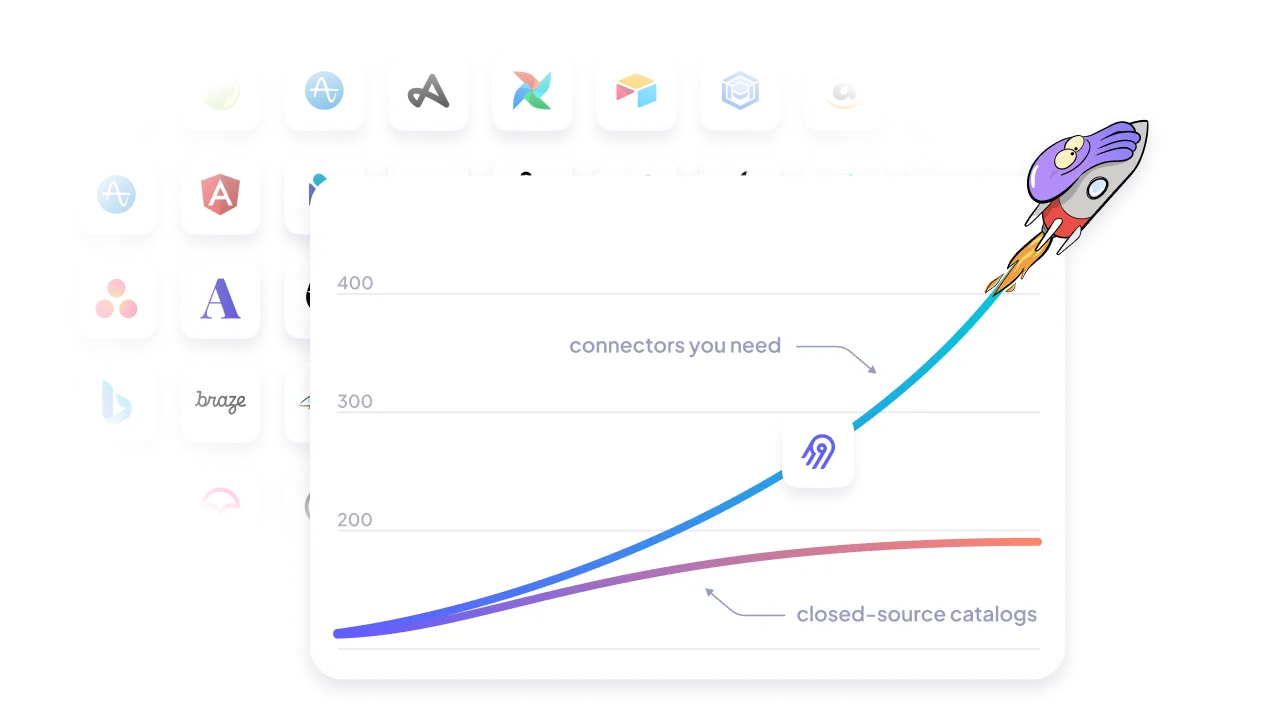
Cover your custom needs with our extensibility
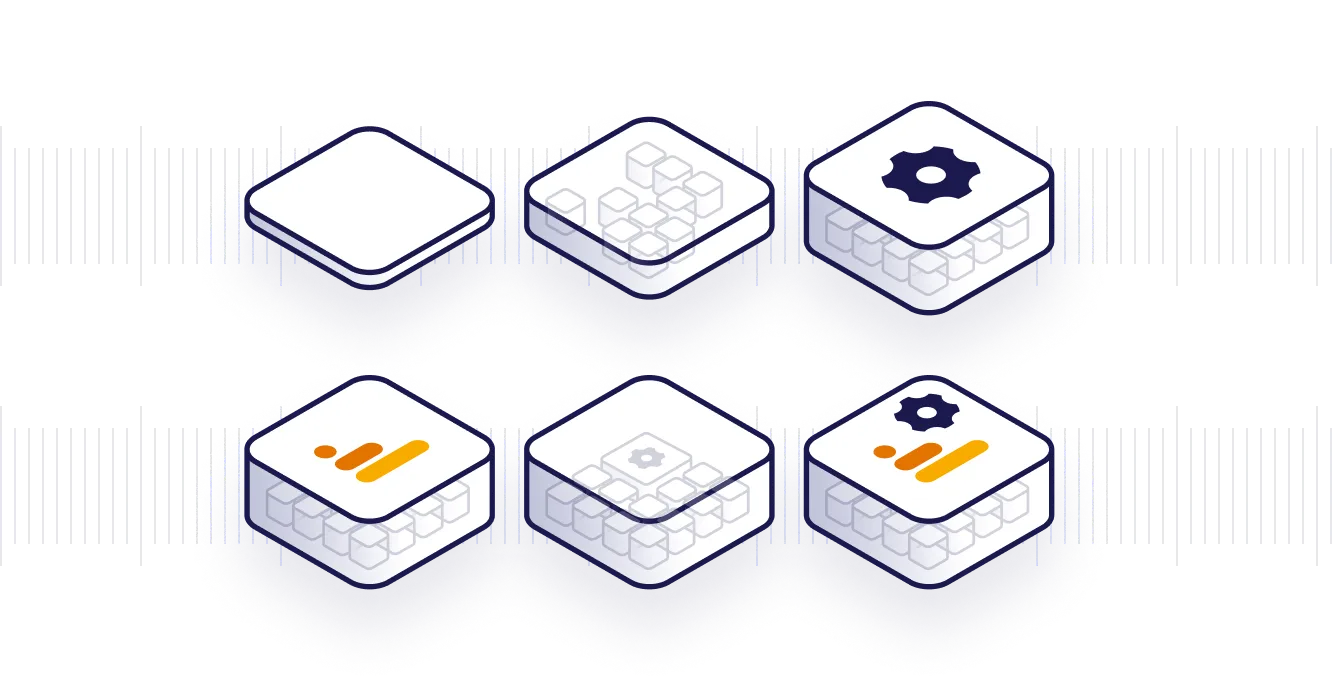
Free your time from maintaining connectors, with automation
- Automated schema change handling, data normalization and more
- Automated data transformation orchestration with our dbt integration
- Automated workflow with our Airflow, Dagster and Prefect integration
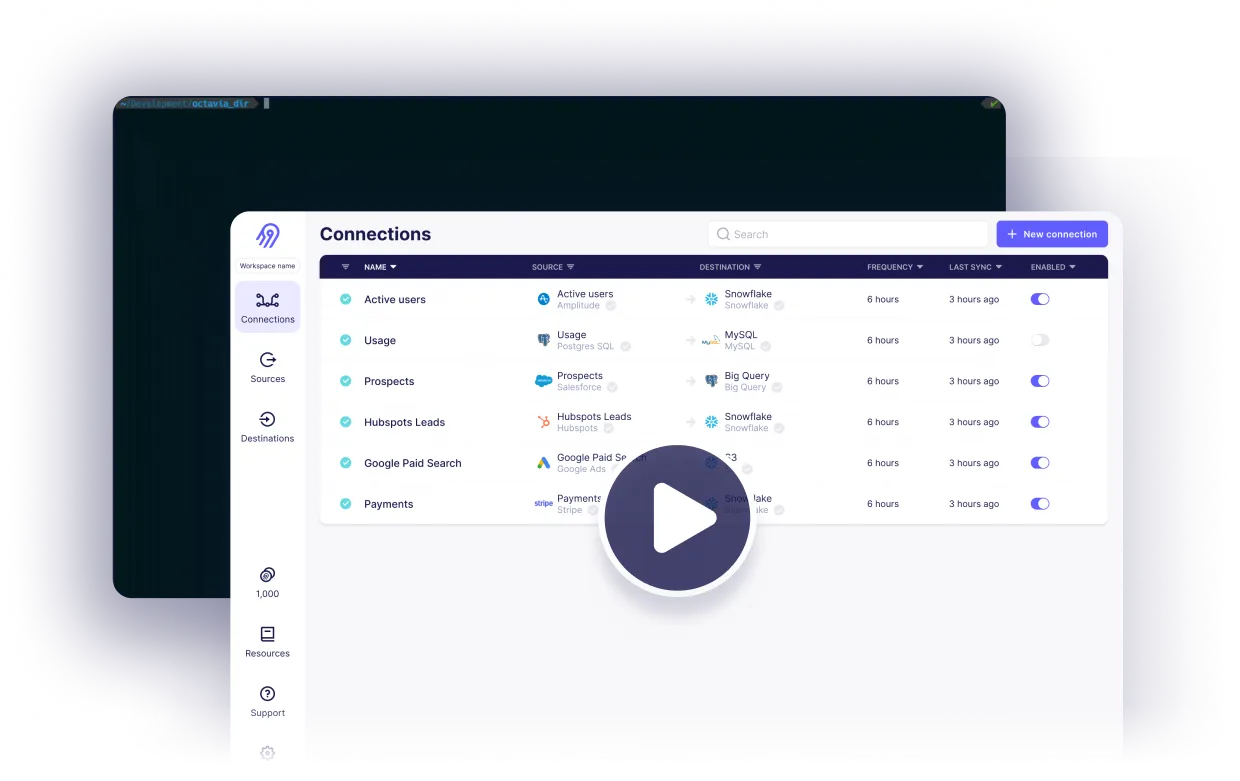
Reliability at every level
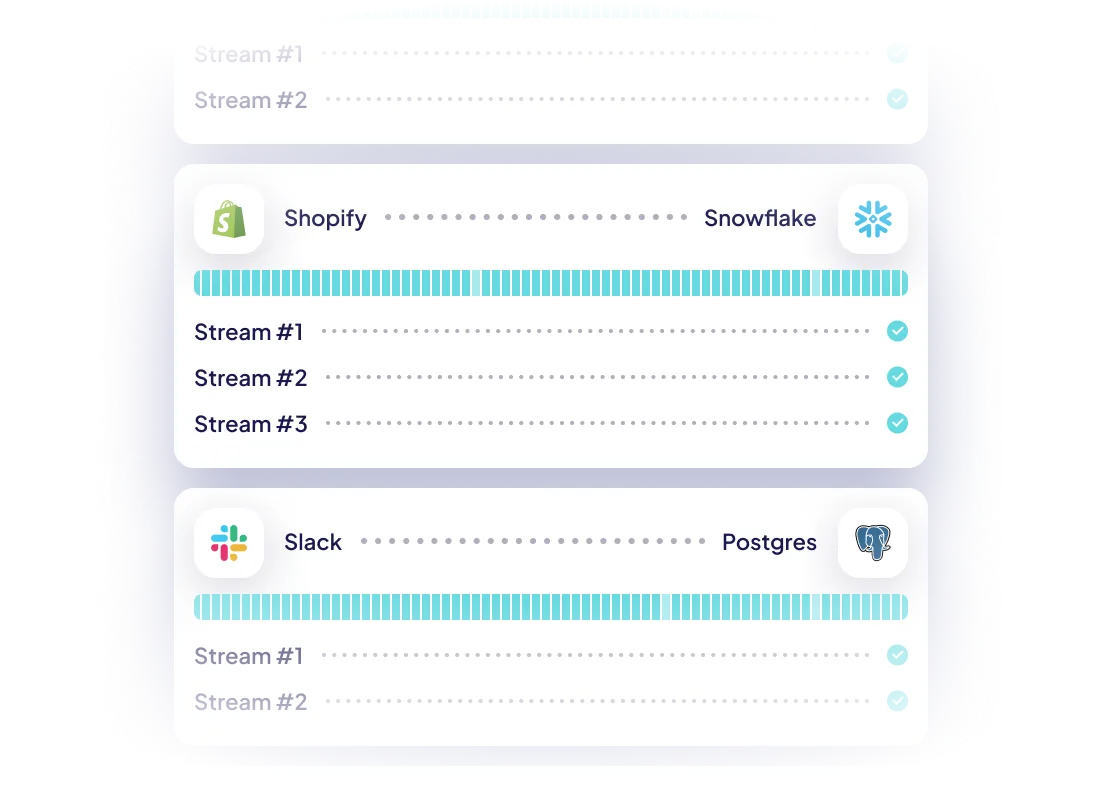



Airbyte Open Source


Airbyte Cloud


Airbyte Enterprise

Why choose Airbyte as the backbone of your data infrastructure?
Keep your data engineering costs in check
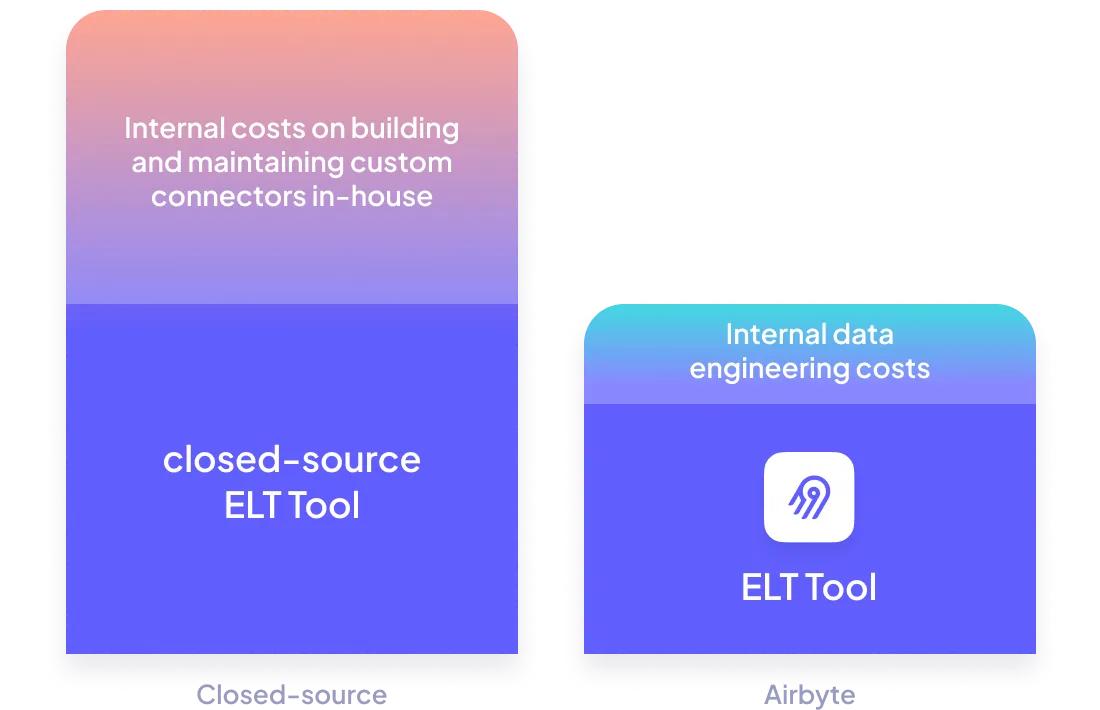
Get Airbyte hosted where you need it to be
- Airbyte Cloud: Have it hosted by us, with all the security you need (SOC2, ISO, GDPR, HIPAA Conduit).
- Airbyte Enterprise: Have it hosted within your own infrastructure, so your data and secrets never leave it.
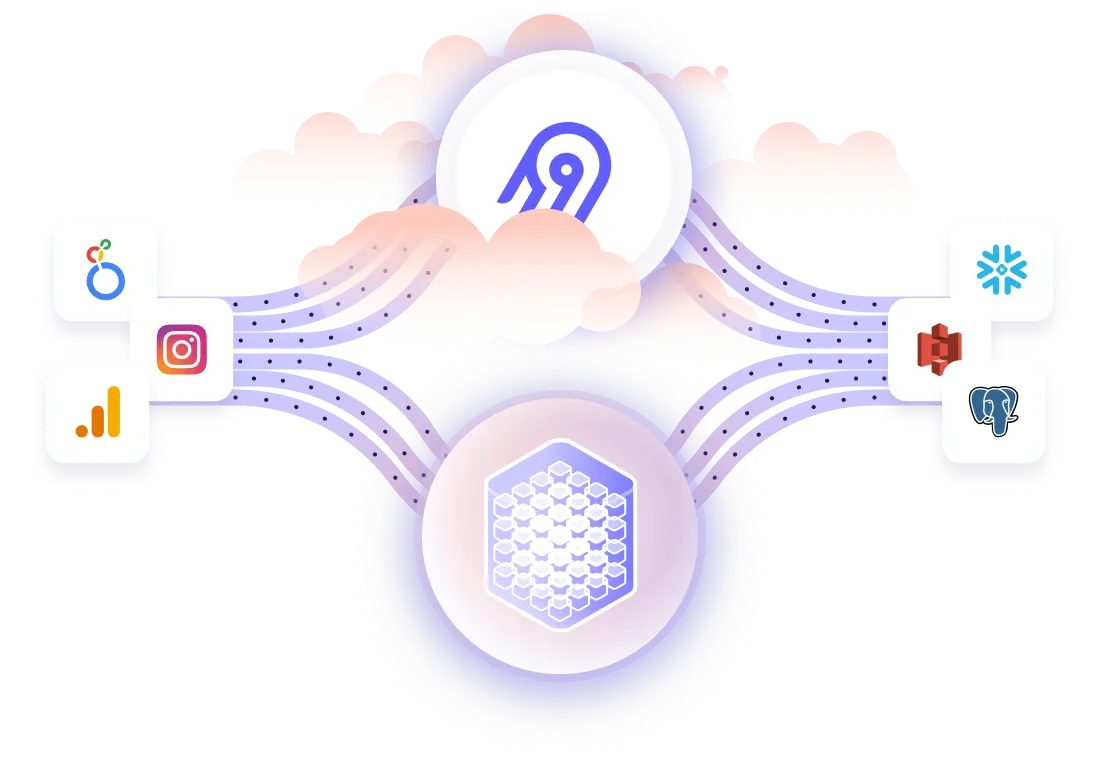
White-glove enterprise-level support
Including for your Airbyte Open Source instance with our premium support.
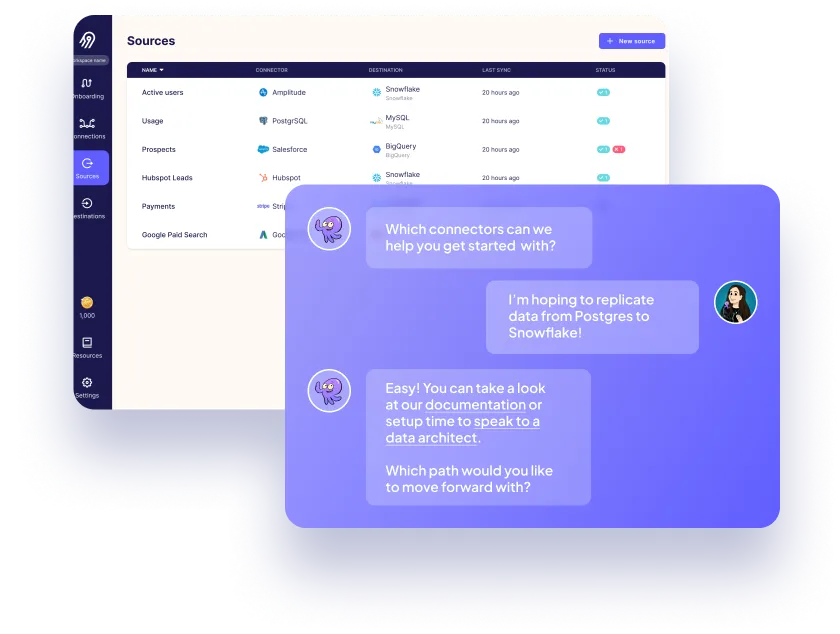

Fnatic, based out of London, is the world's leading esports organization, with a winning legacy of 16 years and counting in over 28 different titles, generating over 13m USD in prize money. Fnatic has an engaged follower base of 14m across their social media platforms and hundreds of millions of people watch their teams compete in League of Legends, CS:GO, Dota 2, Rainbow Six Siege, and many more titles every year.
Ready to get started?
FAQs
What is ETL?
ETL, an acronym for Extract, Transform, Load, is a vital data integration process. It involves extracting data from diverse sources, transforming it into a usable format, and loading it into a database, data warehouse or data lake. This process enables meaningful data analysis, enhancing business intelligence.
WorkRamp is the leading unified training and learning Platform built for the modern enterprise that your employees, customers, and partners will love. WorkRamp assist you cross-pollinate content and resources across teams to save time & money, grow revenue performance. WorkRamp continuously seeks to upgrade their platform and listens profoundly to their customers. WorkRamp advances learning and teaching as a growth engine for your business with a maleable platform which empowers teams to promote top talent, exceed revenue targets.
Apache Pulsar is an open-source distributed messaging and streaming platform designed for high-performance, real-time data processing at scale. It offers seamless integration of messaging and event streaming, providing a unified platform for both pub-sub messaging and streaming analytics use cases. Pulsar features a decoupled architecture, enabling efficient scalability and fault tolerance. It supports durable message storage, multi-tenancy, and geo-replication for data resilience and global availability. With built-in support for connectors, Pulsar simplifies data ingestion and enables easy integration with external systems. Apache Pulsar empowers organizations to build robust, scalable, and reliable data streaming pipelines for real-time data processing and analysis.
Workramp's API provides access to a wide range of data related to employee training and development. The following are the categories of data that can be accessed through Workramp's API:
1. User data: This includes information about individual users, such as their name, email address, and job title.
2. Course data: This includes information about the courses available on Workramp, such as the course name, description, and duration.
3. Assessment data: This includes information about the assessments available on Workramp, such as the assessment name, description, and passing score.
4. Progress data: This includes information about the progress of individual users in completing courses and assessments, such as the percentage of the course completed and the score achieved on an assessment.
5. Certification data: This includes information about the certifications earned by individual users, such as the certification name, date earned, and expiration date.
6. Analytics data: This includes information about the usage of Workramp, such as the number of users, courses completed, and assessments passed.
What is ELT?
ELT, standing for Extract, Load, Transform, is a modern take on the traditional ETL data integration process. In ELT, data is first extracted from various sources, loaded directly into a data warehouse, and then transformed. This approach enhances data processing speed, analytical flexibility and autonomy.
Difference between ETL and ELT?
ETL and ELT are critical data integration strategies with key differences. ETL (Extract, Transform, Load) transforms data before loading, ideal for structured data. In contrast, ELT (Extract, Load, Transform) loads data before transformation, perfect for processing large, diverse data sets in modern data warehouses. ELT is becoming the new standard as it offers a lot more flexibility and autonomy to data analysts.





















